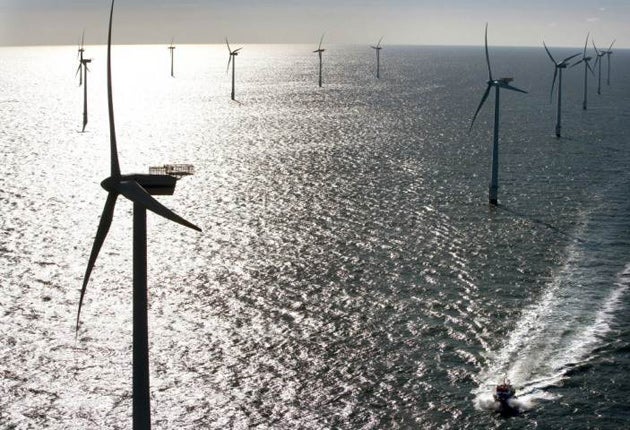Windfarm blade plant to open on Tyneside
US company Clipper plans first British factory in jobs boost for the North-east

Britain's first factory making turbine blades for offshore wind farms will go into production in Newcastle this year, the US renewables group Clipper Windpower said yesterday.
The 4,000 sq m plant on the Neptune Estate, in Walker, on the banks of the River Tyne, will develop and build blades for the "Britannia Project" – the 10-megawatt turbine with 72-metre, 30-tonne blades being developed by Clipper. By 2020, the plant is expected to employ up to 500 people. The plan is backed by a £4.5m government grant, awarded last September, for developing both the blades and also gearbox technology for the extra-large turbines.
James Dehlsen, the Clipper chairman, said yesterday: "The offshore wind market in the UK is rapidly becoming one of the most exciting sectors in the global renewable-energy industry."
The Danish company Vestas Wind Systems closed its plant on the Isle of Wight last year which made blades for onshore wind farms. Clipper's plant will be both Britain's first offshore blade factory, and its only turbine maker.
The Government is keen to back the wind sector as a provider of green electricity and source of industrial growth. Both the Prime Minister and the Energy Secretary attended the launch of Clipper's plans in Newcastle yesterday. "The combination of our strong natural wind resource and the substantial backing we've given the industry mean the investment conditions in the UK are unrivalled," Gordon Brown said.
Britain missed the chance to develop a competitive supply chain for onshore wind farms and the market is dominated by Danes and Germans.
Trickier offshore technology is at an early stage, and so far represents only 1 per cent of the world's installed wind-power capacity. But it is a rapidly expanding market, as the technical challenges are met. And the economic implications are considerable. In the UK alone, the expansion needed to meet government targets for de-carbonising Britain's electricity generation represents employment of an estimated 70,000 people and investment of at least £100bn.
British manufacturing must grab the opportunity now if the offshore supply chain is not to be lost to European rivals, said Maria McCaffery, the chief executive of the British Wind Energy Association. "This development is going to happen anyway; whether or not we get the economic benefit from it will be a function of whether our manufacturing sector has an appetite for taking part," she added. "If not, all the jobs and economic development will go again to Germany, Denmark and Spain."
Subscribe to Independent Premium to bookmark this article
Want to bookmark your favourite articles and stories to read or reference later? Start your Independent Premium subscription today.

Join our commenting forum
Join thought-provoking conversations, follow other Independent readers and see their replies